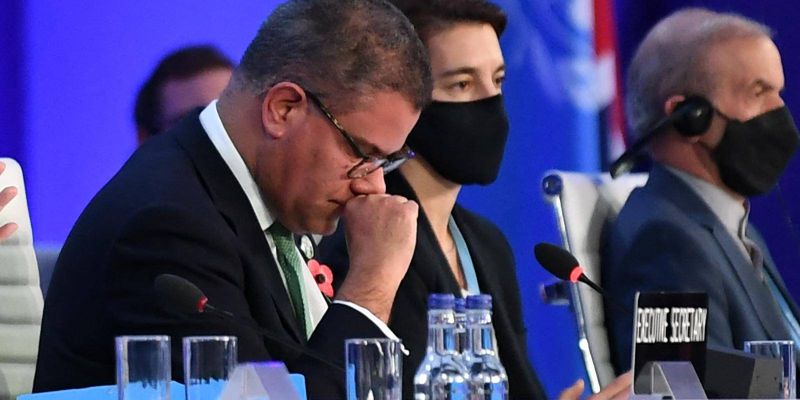
Overall verdict is not enough done
Professor Tim Benton
Not enough has been done at this meeting to reduce emissions consistent with avoiding dangerous climate change in decades to come.
There have been lots of pledges and the launching of encouraging new international initiatives, some more meaningful than others. But genuine urgency and a willingness to match words with action and to close the yawning gap between pledges and detailed, short-term plans is still missing.
Governments need to move forward from this summit with renewed determination to cooperate, urgently build on what’s been agreed here, and strengthen their nationally-determined contributions (NDCs) in the next year, while providing the finance that poor countries and vulnerable populations need.
Fossil fuels action compromised but progressing
Sian Bradley
COP26 marks a turning point for action on fossil fuels. While the first ever references to coal and fossil fuel subsidies in a COP decision text were compromised, the fact they survived at all does represent progress.
Many parties did raise their ambition, with over 40 countries committing to phasing coal-fired power out, and over 30 countries and institutions now committing to halt international finance for fossil fuels.
With the launch of the Beyond Oil and Gas Alliance, the need for decisive action on oil and gas – as well as coal – has landed firmly on the political agenda. Governments will increasingly find their climate leadership questioned where they continue to support oil and gas production.
Raise ambition on emissions reductions and net-zero pledges
Anna Aberg
Climate change is already causing severe devastation around the world and we know that unprecedented action needs to be taken this decade to avoid the most disastrous impacts.
The 2030 national emission reduction targets (NDCs) governments have submitted put us on a highly dangerous trajectory towards warming of 2.4 degrees by the end of the century.
It is crucial governments raise the ambition of their NDCs substantially before the end of 2022, as called for in the Glasgow Climate Pact. It will also be essential to monitor the implementation of all pledges made at COP26 and to hold governments to account.
Finance and adaptation is only a first step
Ruth Townend
Climate impacts are accelerating and rich countries need to meet the $100bn a year commitment they signed up to 12 years ago. There can be no doubt about the level of need in developing nations for financial support, not least for adaptation.
The impacts they experience will have knock on effects beyond their borders. To prevent cascading climate risk, those countries most wealthier countries need to meet and go beyond their annual $100bn promise, and provide more finance focused on helping countries manage climate change impacts.
Doubling adaptation finance by 2025 is only a first step in the right direction.
Inclusion critical for the next COP
Nina Jeffs
As we look to COP27 in Egypt, serious effort needs to be made on inclusion and representation.
COP26’s historic registration numbers and gender-responsive funding pledges are a step forward, but it is critical that those most affected by climate change, including representatives from the Global South, women, youth, and Indigenous peoples, have a seat at the decision-making table.
Professor Tim Benton, Research Director, Emerging Risks; Director, Environment and Society Programme; Siân Bradley, Senior Research Fellow, Environment and Society Programme; Anna Åberg, Research Analyst, Environment and Society Programme; Ruth Townend, Research Fellow – Climate Risk and Diplomacy, Environment and Society Programme and Nina Jeffs, Schwarzman Academy Fellow, Environment and Society Programme.
